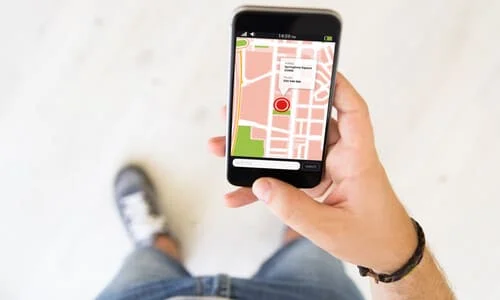 Rideshares are becoming increasingly popular, with people using them on vacation, for work, errands, and even when they need to move when their car is in the shop.
Rideshares are becoming increasingly popular, with people using them on vacation, for work, errands, and even when they need to move when their car is in the shop.
But, just as rideshares are gaining in use, they are also increasing involvement in car accidents — some leaving riders injured and confused about how to file a claim since a third party is involved.
Are there special laws that apply to rideshare accidents? The answer is, technically, yes, but not many.
One considerable difference in the laws of California is that rideshare companies and drivers must carry insurance that meets state requirements with commercial liability coverage in case they are at fault or partially at fault for a car accident.
Being involved in a car accident is already a frightening and potentially painful situation to be in, but when it involves a rideshare company and driver, the process of receiving compensation can become that much more complicated.
Singh Ahluwalia Attorneys at Law focus on helping passengers of ridesharing accidents find compensation for their injuries and losses.
Call us today at (559) 878-4958 or contact us online to schedule your appointment. Our consultations are confidential and have no obligation.
How Do California Rideshare Laws Work?
Rideshare laws were created after an influx of rideshare drivers entered California roads, and the law defined them as commercial vehicles while they are completing rides.
So, while drivers must carry their own insurance policy, their employer must also provide additional insurance to cover the event of an accident.
The reason is that there have been cases where the driver’s insurance was not enough to cover losses or because the driver’s insurer refused to cover commercial fare activity.
California laws do not require rideshare drivers to have special licensing to participate in the ridesharing business. Unlike other commercial drivers, rideshare drivers are only expected to pass a general non-commercial licensing exam and carry their own private insurance.
In cases of an accident, rideshare drivers and passengers should treat the accident in the same manner by ensuring that all involved are safe, calling 911, and ensuring a police report. Any compensation for injuries and damage should be handled by filing an insurance claim.
What Kind of Insurance Do Rideshare Companies Have?
Unlike other commercial drivers, California law requires that rideshare companies provide a commercial insurance policy to cover their drivers if they are involved in an accident, whether there are passengers in their cars or not.
While the driver is waiting, their insurance policy covers less than if they were completing a ride.
Generally, while drivers are idling and waiting for a passenger to enter their car, they are covered with the following insurance maximums:
- $50,000 per person
- $100,000 personal injury coverage per incident
- $25,000 property damage coverage per incident
Though, it is important to note that once a passenger enters the car, amounts drastically increase to accommodate up to $1 million worth of coverage per incident.
While this number sounds like a large sum, injured passengers may find that it comes up short when there are multiple claims by multiple passengers in the accident. Additionally, depending on the ridesharing company, their policies can differ and apply at different points of the ride.
Drivers must maintain these types of coverage in their insurance policies:
- Liability coverage
- Collision and Comprehensive Coverage
- Uninsured and Underinsured Motorist Coverage
California law demands that all drivers must be insured at all times. They must either carry liability insurance as part of their policies, a $35,000 deposit with the DMV, or a surety bond for $35,000 from a company licensed to do business in California.
All injured passengers are asked to review the insurance policies for both Lyft and Uber before filing any claims. Even if filing these claims is as easy as submitting an online form, the outcome can be considerably different if you are not working with an experienced attorney.
Working with a rideshare lawyer will help answer any additional questions about the process and ridesharing companies’ insurance policies.
No Specialized Licenses Needed to Drive for Uber and Other Ridesharers
All ridesharing drivers must be able to pass the written and driving tests to secure a state-issued driver’s license. Ridesharing drivers do not need to pass different driving tests or pay for specialized licensing or undergo additional training to ensure passenger safety.
Legally, this presents a couple of concerns, as ridesharing companies do not have in-person interviews for their drivers, have them pass additional tests, obtain specialized driver’s licenses, and require drivers to use their phones in order to record their completed rides and get paid.
In many states, using a phone while driving is considered a distraction and illegal, but for rideshare drivers, using their phones while driving is a must.
Ridesharing accidents account for an increase in car accidents across the entire U.S., including California. In fact, the University of Chicago reported a 3% increase in car accident fatalities in 2019 linked to ridesharing drivers.
Causes of Rideshare Accidents Are the Same as Normal Car Accidents
The causes of rideshare accidents are no different than normal accidents. Usually, it is due to negligence from either one or multiple parties. Ridesharing accidents are caused by:
- Aggressive driving
- Distracted driving
- Driving negligently in dangerous weather and road conditions
- Driving while under the influence
- Not yielding to oncoming traffic
- Running a red light
- Speeding
Just like the causes are similar to a normal car accident, the results can be equally devastating. If you were in an accident with another car, you would pursue a claim against the negligent’s party insurer.
In cases of a rideshare car accident, the injured party would do the same.
The police will review and investigate the accident to determine who was liable for the crash and provide a police report detailing what occurred. California is an at-fault state, and in many cases of an accident, more than one party can be found to be at fault.
Since mutual negligence is possible, ridesharing companies are known to use these details to free themselves from liability.
Rideshare Accidents Are Challenging to Receive Compensation From
The ugly truth is that ridesharing companies will do whatever possible to minimize payouts or free themselves from responsibility altogether. They may also fail to report an accident, especially if a driver is trying to avoid having the accident on their corporate account.
This is still known to be true, even after many states have passed legislation that they have active insurance policies for their drivers, which is why passengers involved in rideshare accidents should seek legal counsel for any claims they need to file.
Ridesharing companies are looking to minimize their liability, so they would prefer if you spoke to them first. However, saying the wrong thing can not only reduce the likelihood of compensation but may remove them from liability altogether.
Speaking with your attorney can help you know what to do if you are contacted by the other party’s insurer or ridesharing company.
Do Not Accept Payoffs After an Accident
Often, passengers will find that their Uber driver is willing to pay them off so that they do not file a claim against them or involve a legal team.
Do not take their money. As a passenger, you have the right to claim damages in the event of a car accident in Fresno, California, even if the injuries are minor, but receiving any sort of payment may compromise your ability to pursue any further claims.
Always seek a full medical evaluation after any sort of accident. Minor injuries will still require medical attention and possibly physical therapy sessions.
Riders will find they must go out of pocket or file a claim with their insurer to cover their medical bills. Giving cash payoffs or accepting them is illegal and can compromise an injured party’s ability to file a claim against their ridesharing driver and company.
California’s Statute of Limitations for Personal Injury Applies to Rideshare Accidents
Ridesharing accidents, like other car accidents, fall under personal injury in the State of California. This means that all cases of personal injury seeking compensation must file a claim no later than two years after the victim was injured.
For any injuries appearing later, like TBIs or whiplash, the injured party will have one year to file a claim from the diagnosis date.
Failure to file a claim against the driver or ridesharing company within two years for a car accident will make it very difficult, if not impossible, to have a valid claim. Due to California’s Statute of Limitations law, the defendant can easily have the case thrown out in court.
Ridesharing Accident? Call Us Today
Car accidents can be a painful and terrifying situation to be in, but one that involves rideshare can be even more confusing. It is important to talk to a lawyer so that you can know what the next steps are to fling a claim and receive compensation for your injuries.
If you were involved in a rideshare accident, call Singh Ahluwalia Attorneys at Law for a no-obligation consultation to discuss your case and see what strategies we can pursue. Call us at (559) 878-4958 or schedule your appointment online.


